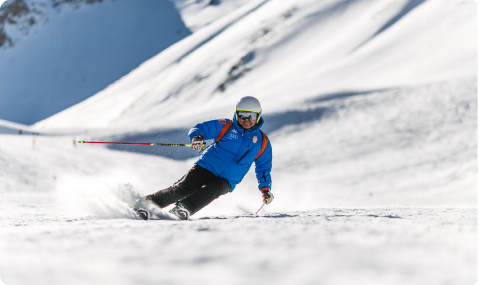Sports Photographer Education: A Comprehensive Guide
When it comes to pursuing a career as a sports photographer, having the right education and training is essential. With the ever-growing demand for captivating sports imagery, it’s crucial to equip yourself with the necessary skills and knowledge to excel in this competitive industry. In this article, we will explore the various aspects of sports photographer education, including the importance of formal education, alternative learning options, and the top skills required to succeed in this field.
1. The Importance of Formal Education
While some photographers may argue that formal education is not necessary in the creative industry, pursuing a degree or diploma in photography can provide you with a solid foundation. Many reputable institutions offer specialized programs in photography that cover technical skills, artistic composition, post-processing techniques, and the business side of photography. These programs often include hands-on experience and access to state-of-the-art equipment and facilities.
One renowned institution that offers a comprehensive photography program is New York University (NYU). NYU’s Tisch School of the Arts provides a Bachelor of Fine Arts (BFA) degree in Photography & Imaging. This program focuses on developing technical proficiency, critical thinking, and visual communication skills. Students at NYU Tisch also benefit from the school’s extensive network of industry professionals.
2. Alternative Learning Options
Formal education may not be feasible for everyone due to various reasons such as financial constraints or time limitations. Fortunately, there are alternative learning options available that can still help you acquire the necessary skills. Online courses and workshops have become increasingly popular, offering flexibility and convenience for aspiring sports photographers.
Yellowbrick, for example, offers an online course called NYU Fundamentals of Global Sports Management. While this course primarily focuses on sports management, it provides valuable insights into the sports industry, which can be beneficial for sports photographers. Understanding the business side of sports can help you navigate the industry better and build relationships with clients and athletes.
3. Technical Skills
To excel as a sports photographer, you need to have a strong grasp of technical skills specific to this genre. This includes understanding camera settings, such as shutter speed, aperture, and ISO, to capture fast-paced action effectively. Additionally, sports photographers often work in challenging lighting conditions, so knowing how to manipulate artificial lighting or work with natural light is crucial.
Post-processing skills are also essential for sports photographers. Being proficient in software like Adobe Lightroom and Photoshop allows you to enhance your images, adjust colors, and crop or straighten photos as needed. Familiarity with editing techniques specific to sports photography, such as freezing motion or highlighting the intensity of the game, can give your images an extra edge.
4. Creativity and Composition
While technical skills are vital, sports photography is also an art form that requires creativity and a keen eye for composition. Capturing the decisive moment, showcasing emotions, and telling a story through your images are all crucial aspects of sports photography. Understanding the principles of composition, such as the rule of thirds or leading lines, can help you create visually appealing and impactful photographs.
5. Adaptability and Quick Thinking
Sports photography often presents fast-paced and unpredictable situations. You need to be able to adapt to different environments, anticipate the action, and be ready to capture the perfect shot at a moment’s notice. Quick thinking and the ability to make split-second decisions are essential skills for any sports photographer.
6. Networking and Building Relationships
Building a strong network and establishing relationships within the sports industry can greatly benefit your career as a sports photographer. Attending sports events, connecting with athletes, coaches, and sports journalists, and showcasing your work through various platforms can help you gain exposure and open doors for potential opportunities. Consider joining photography clubs or organizations and participating in photography competitions to further expand your network.
In conclusion, pursuing a career in sports photography requires a combination of technical skills, artistic creativity, adaptability, and networking abilities. While formal education can provide a solid foundation, alternative learning options and continuous self-improvement through practice and experimentation are equally valuable. Remember, success in sports photography comes not only from education but also from passion, dedication, and a relentless pursuit of capturing the essence of sports through your lens.
Key Takeaways:
- Formal education in photography can provide a solid foundation for a career in sports photography, covering technical skills, composition, post-processing, and business aspects.
- New York University’s Tisch School of the Arts offers a comprehensive Bachelor of Fine Arts (BFA) degree program in Photography & Imaging.
- Alternative learning options, such as online courses, can be valuable for acquiring skills and insights into the sports industry.
- Yellowbrick’s NYU Fundamentals of Global Sports Management online course offers valuable knowledge for sports photographers.
- Technical skills, including understanding camera settings and post-processing techniques, are crucial for capturing compelling sports imagery.
- Creativity, composition, and storytelling play a significant role in sports photography.
- Adaptability, quick thinking, and the ability to make split-second decisions are essential skills for sports photographers.
- Building a strong network and establishing relationships within the sports industry can provide valuable opportunities.
- Consider joining photography clubs, participating in competitions, and showcasing your work to expand your network.
- Continuous self-improvement, passion, dedication, and a relentless pursuit of capturing the essence of sports are key to success in this field.
To further enhance your knowledge and skills in sports photography, consider taking the “NYU Fundamentals of Global Sports Management” online course offered by Yellowbrick. This course can provide valuable insights into the sports industry, helping you navigate the field better and build relationships with clients and athletes. With the right education, skills, and determination, you can pursue a fulfilling career as a sports photographer.




